“It’s my dream to be able to carry on building my businesses in a way that means I can continue to offer help and support to people around me who need it” ~Andy Mort
In the Sensipreneur Series I interview HSP’s who have made sensitivity a big part of their own business.
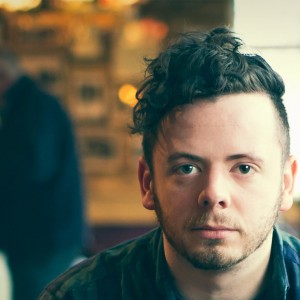 This (e-mail) interview is with musician and writer Andy Mort from AtlumSchema.com (Music) and andymort.com (blog)
This (e-mail) interview is with musician and writer Andy Mort from AtlumSchema.com (Music) and andymort.com (blog)
Andy is clearly a multipotentialite (a.k.a. “Renaissance person” or “scanner”). This is an increasingly talked about way to describe those of us who like to be involved in different kinds of projects (at once), instead of focusing on one single thing from end to finish or achieving expert status in one single field.
1. I know you mentioned in your article on walking to work that you’re working on a design and film project for a big client. You’re also a musician and a writer. Does that cover all your creative multipotentialite bases? Can you tell us a little more about the kinds of things you do?
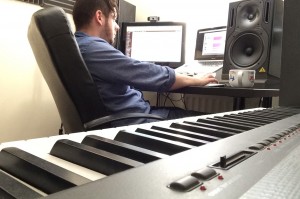 Yes, the film project was quite a new thing for me; I’ve dabbled in video production for a few years but last summer I was invited to work on a bit of a pioneering schools project by a charity. It really caught my attention and I loved some of the concepts and ways that they were planning to convey their message and get kids thinking.
Yes, the film project was quite a new thing for me; I’ve dabbled in video production for a few years but last summer I was invited to work on a bit of a pioneering schools project by a charity. It really caught my attention and I loved some of the concepts and ways that they were planning to convey their message and get kids thinking.
The main issue for me was that it would involve me learning how to animate drawings…and fast. So I did. I love things like that because they force you to learn a new skill. And so in one project I’ve had an outlay for a whole bunch of the creative multi-potentialite bases; I have done animation, voiceovers, and all the music/sound effects. It’s been quite the project!
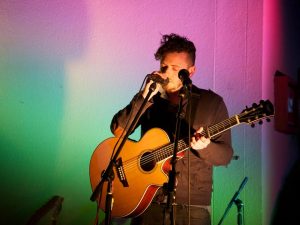 My primary creative outlay however is music. I’m a ‘singer-songwriter’; I produce and perform what is probably best described as downbeat, ambient-acoustic music. And I suppose it is out of music that all my other creative projects flow. My writing started as the poetry notebooks that would fill with all the excess material that didn’t make it into songs, and then my blog started after I wrote about my reflections and struggles with the music industry years ago.
My primary creative outlay however is music. I’m a ‘singer-songwriter’; I produce and perform what is probably best described as downbeat, ambient-acoustic music. And I suppose it is out of music that all my other creative projects flow. My writing started as the poetry notebooks that would fill with all the excess material that didn’t make it into songs, and then my blog started after I wrote about my reflections and struggles with the music industry years ago.
I self-produced music videos and learned those skills that way. I started a podcast in order to connect with other people in the music world. And while it has all diffused and diversified away from it, everything seems to have come from the same core. The two main arms of what could be described as my business are now my music, and my website.
Listen to Andy’s latest album (while reading :) ) below:
I love thinking about this kind of thing. In fact, I do have an ideal workday mapped out above my desk. Does that make me sad? On an ideal day, I get up at 5am, grab a cup of coffee and journal for about 20-30 minutes, reflecting on yesterday and thinking about what’s in store today. I then write for two hours. This is other projects; blog posts, articles, books etc. It’s the clearest time in the day for me, when I can just buckle down and make some serious inroads without distractions. Then I get ready and have breakfast with my wife before getting a lift with her to work. She works about a mile and a half from our house.
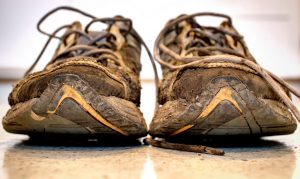 We park up and then I walk home again. It sounds strange but I love to feel like I’m making that transition from home to work; both the exercise and the physical/mental transfer from one space to another really helps me shift into the right headspace. Once I’m back in my office I tackle the biggest tasks and do the projects that require the most thought and energy. I work much better in the morning and start each day with a list of 3 must-do items. I try to get at least two done before taking a break for lunch.
We park up and then I walk home again. It sounds strange but I love to feel like I’m making that transition from home to work; both the exercise and the physical/mental transfer from one space to another really helps me shift into the right headspace. Once I’m back in my office I tackle the biggest tasks and do the projects that require the most thought and energy. I work much better in the morning and start each day with a list of 3 must-do items. I try to get at least two done before taking a break for lunch.
The time immediately after lunch I like to do the small niggly to-do items that don’t require much thought; usually ticking off a few things creates momentum and energy for me to get back into whatever projects I’m working on. Then come 5pm I like to shut things down, close the door and head to the gym with my wife, so we can clear our heads and make that mental and physical journey home again.
Only very recently to be honest. It was something I stumbled upon after becoming dissatisfied with my outcome in Myers-Briggs. I am an INTJ, which although fits a lot of who I am posed some serious questions about other parts, not least my empathy (and ability to understand people), creativity, and deep emotional connection to music. And so I just happened upon an article that someone had written about high sensitivity; I then took the self-test on Elaine Aron’s website and had a big ‘a-ha’ moment when things just made sense.
I had moved from a place where I was almost looking at the INTJ character profile to decide for me how I ‘should’ respond and behave in certain circumstances, to a point where I was liberated from the prison that can easily build around a personalty label. It enabled me to reframe my life and understand my responses to experiences over the years in light of a new understanding of myself.
It’s all just evolved. For the past four or five years, I have done all sorts of ‘portfolio’ work in order to pay the bills. I started off cleaning houses, gardening, dog-walking, painting and decorating. Then at the end of 2011, I started help care for a friend who was diagnosed with lewy body dementia. As he deteriorated I was able to offer more support and I ended up doing courses and providing live-in care so that his wife could get some respite. I worked on building my website during that time too and found it helpful to write out of and about that hard situation.
My business has been shaped I suppose in a sense by my being willing to help and ready to do things that I might not feel equipped to do. That’s the theme that has emerged through the years. But where I am now is in a place where I am doing what I feel more skilled and comfortable doing, pulling together a lot of my experiences and the stuff I’ve had to learn.
It’s my dream to be able to carry on building my businesses in a way that means I can continue to offer help and support to people around me who need it. It’s in those situations and experiences that I feel most alive, and even where I get inspired to write and create music. I guess I always have an eye on putting in place structures so that I can detach my physical self, and my time from the ways I generate income. This is one of the thoughts behind launching a member’s only area for my website soon.
5. What are 3 ways you really notice that you are HSP in running your business(es)?
The first thing is the ‘burnout’ that I experience if I’m trying to do too much on my own in a short period of time. I have the ‘superhero complex’ that Chris Ducker talks about; I try to do everything myself; partly because I don’t want to impose on others, and partly because I fear situations when something hasn’t been done how I want it and then I have to deal with that somehow. But I am getting a lot better at this and over the past few months especially have been intentionally and consciously delegating and asking people for help with things.
Secondly, I think dealing with negative feedback and disappointment can be quite hard for the HSP side of me. Again, over the years I have developed ways to cope with and bounce back from it but there are certainly times that my desire is to simply run away from everything when it gets overwhelming. I like to tinker with things and procrastinate in order to avoid ‘shipping’ because it’s always easier to feel positive about something before anyone has seen/heard it.
And finally, I suppose the buzz-notion of ‘hustle’ that is used a lot in conversations about building business as a solopreneur. I am very aware of the HSP trait when it comes to ‘hustling’; I don’t like to put people out, place unfair expectations on them, or talk myself up. So I feel that I probably miss out on potential opportunities simply by not putting myself forward and in front of people.
However, that said I think I find something very attractive about the ‘jab, jab, jab, right hook’ mentality that Gary Vaynerchuck talks about, where modern business is all about giving, giving, giving, and providing value to people before you should even consider asking for anything back. I like this. It fits well. I am a ‘slow and steady wins the race’ kind of person, and am much more comfortable persevering and persisting with giving than I am asking for money or attention.
6. What are 2 ways in which you have diverted from classic business models to suit your sensitivity?
One: I got on board with the ‘Pay What You Can’ model pretty early on with my music. There was something very freeing about putting the decision around the value of an otherwise arbitrarily priced product into the hands of the audience. And it surprised me how generous people wanted to be.
It is a win-win. It feels like a risky thing to do, and your head tells you that people will just give you as little as they can get away with. But in actuality, if you contribute value (play a gig, provide a service) and you have connected with them on a deeper level, they feel compelled to be generous back. Not an easy one for economists to create a model around (I imagine).
Two: I am driven more by a kind of internal intuition rather than external ambition. I often respond to the question ‘what feels like the right thing to do’? with saying ‘OK, now let’s find a way to make that work in a sustainable way’. Rather than ‘I want to achieve this and that, now let’s find the most efficient way to acquire it’. I see the process as more important than the end result, which probably changes the nature of a lot of my aims and goals.
7. How has – when you look back – your sensitivity proven to be an advantage in having and running your own business(es)?
I guess it has provided a foundation of patience and understanding of what it takes to move in certain directions. And also the ability to notice subtle details in the successes or failures I observe in other people (and myself). The fact that I like to listen before I just go charging into making a decision provides a good platform to build from.
It also helps today to not have a desire to constantly ask people for stuff. Gary Vaynerchuck’s latest book, Jab Jab Jab, Right Hook really spoke to me in this sense and encouraged me. To get results you need to give and give and give before you’ve even earned the right to consider asking your audience for anything. This is a model that I can get on board with because I love foraging for value and passing it on. And I’ve found that it reaches a point where people actually WANT me to sell them something. And when it’s like that it doesn’t feel so hard!
I would probably have to say, ‘distractions’. I love starting things, and if I’m not really disciplined I move from one project to the next too easily.
I struggle with putting the required effort into the end of a project, especially as it comes time to ship it, promote it, and talk about it. My natural tendency is to retreat at that point, or to start something new. But over the years I’ve learned to get people around me who will encourage and support me, and keep me enthusiastic about stuff right through the end (and beyond).
9. What is the one thing you would have liked to know (and that you now do know) about being a Sensipreneur when you first considered starting your own business?
Something along the lines of money itself not being the ‘root of all kinds of evil’. I was very cautious over seeing myself as anything to do with ‘business’ or ‘making money’ because they had become dirty terms in my head. But over the years I’ve obviously had to see the necessity of money and the opportunity that comes when you have it to create more value in your work.
And as I said earlier, my dream is to continue to be able to help and support people around me by giving my time to them. I wish I’d been clear on that goal right from the start.
Caroline: And since money is not the root of all evil, click here if you’d like to own your own pay what you can copy of the album.



















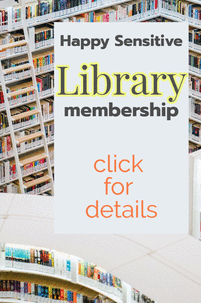

Comments on this entry are closed.